Quarantine Department

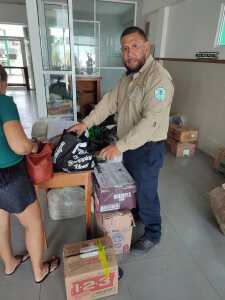
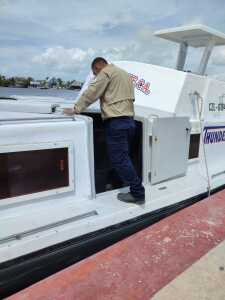
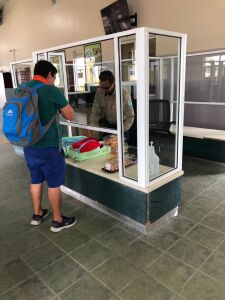
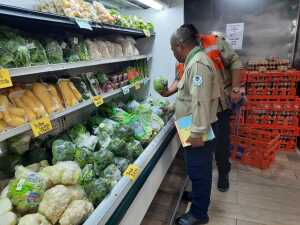
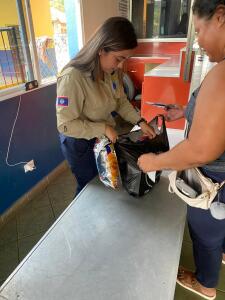
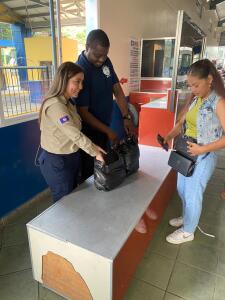
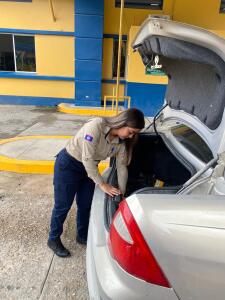
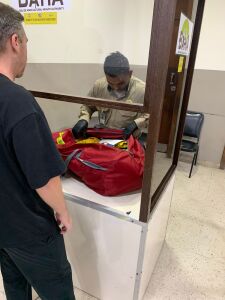
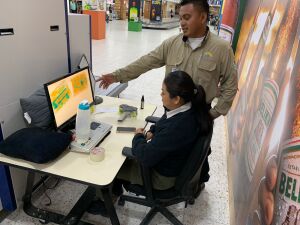



Established in 1981, the Quarantine Department began its operations at the Belize International Airport, now known as The Phillip Goldson International Airport. Originally established under the Ministry of Agriculture, the Quarantine and Inspection Services began its operations protecting the country from the introduction of pests and diseases that could affect Belize’s agriculture patrimony. Over the years, the department has expanded its reach and currently operates at multiple strategic locations across Belize, including the Port of Belize, Belize Northern Border, Benque Viejo Western Border, Big Creek Port, Punta Gorda Port, and San Pedro Port. This proactive approach serves to mitigate biosecurity risks and protect the country’s agricultural industry from imminent threats.
Quarantine Priorities
The Quarantine and inspection services main responsibility is to manage biosecurity risks to Belize by ensuring that regulated imported commodities meet all Sanitary and Phytosanitary import requirements through verification and inspection. By safeguarding the nation from pest and diseases and other risks, the department ensures that Belize fulfills its mandate under the SPS Agreement, thereby fostering international trade and demonstrating the country’s commitment to provide an appropriate level of protection for human health, animal health and welfare, plant health and the environment and ensure safe and wholesome food for the Belizean populace.
The Quarantine Department ensures compliance with Belize’s Sanitary and Phytosanitary import requirements by providing thorough inspection and verification services for imported commodities at points of entry.
By conducting meticulous examinations, the department evaluates and mitigates potential risks associated with regulated commodities, encompassing plants, animals, and their related products across land, air, and sea routes.
Proactively combating the smuggling of contraband goods, the department actively engages in rigorous surveillance operations. This includes vigilant monitoring and inspections of goods at entry points, along with market and supermarket inspections to prevent the unauthorized sale and distribution of regulated commodities.
In instances where regulated commodities arriving at a point of entry without the required quarantine treatment, the department after consultation with the technical department may supervise an approve treatment following international standards and guidelines established by recognized agencies such as the United States Department of Agriculture (USDA) and International Regional Organization for Agricultural Health -OIRSA . These treatments are designed to effectively minimize the risks associated with pests or diseases.
Non-Intrusive Inspection Unit

Contraband Is High Risk

Quarantine And Inspection Services

Ensuring Compliance…..You Can Help

How can the Quarantine Department help you?
Use the contact form below to contact us or check our FAQ to help assist you in your queries.
Our quarantine process involves inspection and verification for the importation of all agricultural goods to prevent the potential entry, establishment and spread of pests and diseases; ensuring the safety of our agriculture and environment.
Through inspection and verification of imports, surveillance activities for early detection, and prompt response measures, including containment, eradication, and public awareness campaigns.
Specific requirements vary and is determined by the respective departments. However, for all importations, a BAHA issued import permit is required. Supporting documents may include Sanitary and Phytosanitary certificates, treatment certificates, international health certificates, and/or other relevant documentation.
The commodity will be detained and the authority will determine whether to allow or refuse entry based on an assessment of risk. Where entry is allowed, the importer will incur and administrative penalty fee. If the risk is determined to be too high, the commodity will be refused and sent back to country of origin, confiscated and treated, or confiscated and destroyed at the expense of the importer.
Our website provides comprehensive information, and our quarantine officers are available to offer guidance and support at all points of entry.
Overview
Quarantine Department









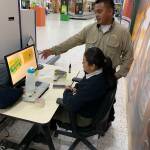



Established in 1981, the Quarantine Department began its operations at the Belize International Airport, now known as The Phillip Goldson International Airport. Originally established under the Ministry of Agriculture, the Quarantine and Inspection Services began its operations protecting the country from the introduction of pests and diseases that could affect Belize’s agriculture patrimony. Over the years, the department has expanded its reach and currently operates at multiple strategic locations across Belize, including the Port of Belize, Belize Northern Border, Benque Viejo Western Border, Big Creek Port, Punta Gorda Port, and San Pedro Port. This proactive approach serves to mitigate biosecurity risks and protect the country’s agricultural industry from imminent threats.
What We Do/Who We Are
Quarantine Priorities
The Quarantine and inspection services main responsibility is to manage biosecurity risks to Belize by ensuring that regulated imported commodities meet all Sanitary and Phytosanitary import requirements through verification and inspection. By safeguarding the nation from pest and diseases and other risks, the department ensures that Belize fulfills its mandate under the SPS Agreement, thereby fostering international trade and demonstrating the country’s commitment to provide an appropriate level of protection for human health, animal health and welfare, plant health and the environment and ensure safe and wholesome food for the Belizean populace.
The Quarantine Department ensures compliance with Belize’s Sanitary and Phytosanitary import requirements by providing thorough inspection and verification services for imported commodities at points of entry.
By conducting meticulous examinations, the department evaluates and mitigates potential risks associated with regulated commodities, encompassing plants, animals, and their related products across land, air, and sea routes.
Proactively combating the smuggling of contraband goods, the department actively engages in rigorous surveillance operations. This includes vigilant monitoring and inspections of goods at entry points, along with market and supermarket inspections to prevent the unauthorized sale and distribution of regulated commodities.
In instances where regulated commodities arriving at a point of entry without the required quarantine treatment, the department after consultation with the technical department may supervise an approve treatment following international standards and guidelines established by recognized agencies such as the United States Department of Agriculture (USDA) and International Regional Organization for Agricultural Health -OIRSA . These treatments are designed to effectively minimize the risks associated with pests or diseases.
Publications and Manuals
Non-Intrusive Inspection Unit

Contraband Is High Risk

Quarantine And Inspection Services

Ensuring Compliance…..You Can Help

Contact Us
How can the Quarantine Department help you?
Our quarantine process involves inspection and verification for the importation of all agricultural goods to prevent the potential entry, establishment and spread of pests and diseases; ensuring the safety of our agriculture and environment.
Through inspection and verification of imports, surveillance activities for early detection, and prompt response measures, including containment, eradication, and public awareness campaigns.
Specific requirements vary and is determined by the respective departments. However, for all importations, a BAHA issued import permit is required. Supporting documents may include Sanitary and Phytosanitary certificates, treatment certificates, international health certificates, and/or other relevant documentation.
The commodity will be detained and the authority will determine whether to allow or refuse entry based on an assessment of risk. Where entry is allowed, the importer will incur and administrative penalty fee. If the risk is determined to be too high, the commodity will be refused and sent back to country of origin, confiscated and treated, or confiscated and destroyed at the expense of the importer.
Our website provides comprehensive information, and our quarantine officers are available to offer guidance and support at all points of entry.
